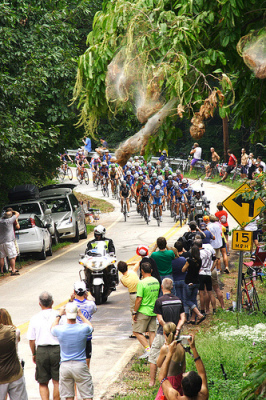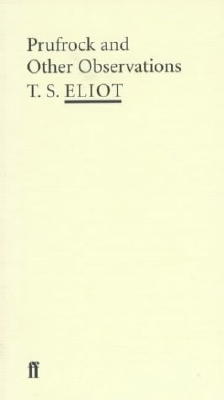(listed in an order in which she could imagining listening to them)
1. David Byrne, "The Sound of Business," from Music for the Knee Plays (Nonesuch CD release, 2007).
Originally released in 1985, this stuff is finally on CD--and I did not have to resort to high-tech maneuvering to make it so! I remember a lot of the tracks from the cassette that I may still own but that probably no longer plays. The CD comes with a great insert explaining (for those of you who, like I, have long wondered) what a "knee play" is ("the 'joints' that hold together the larger scenes--even Shakespeare used them." Well, shame on my English-PhD ass) and giving schematics of the various acts. But with or without apparatus, "The Sound of Business" is a great track, in its mid-1980s minimalist horn-playing way.
They were driving south on the highway.I love it that his examples of oldies, "gone for good," includes one of his own songs.
Their business was in another town,
Bigger than the town they were driving from.
Business took place during office hours in both towns.
This drive was considered business.
The feeling of passing other cars was also considered business:
The feeling of business being done.
The feeling of drifting slowly through a field of moving vehicles.
This was the real speed.
The speed of business, not the numbers on the spedometer.
2. Black Devil Disco Club, "The Devil in Us," from 28 After (Lo, 2006).
Your guess is as good as mine--and numerous other people's--as to whether this is the same band as Black Devil from 1978, whether these are new songs on this album, or whether they are some thirty-odd years old. The important thing is that there is something timelessly compelling about the beats, the synth, the groove.
3. LCD Soundsystem, "Daft Punk Is Playing At My House," from LCD Soundsystem (2005).
Who would not love the idea of your favorite band playing in your very own house? All the kids wanting to crowd in? Every kid for miles in your house? And the neighbors can't call the police?
4. The Dresden Dolls, "My Alcoholic Friends, from Yes, Virginia. . . (Roadrunner, 2006).
This album has made a significant contribution to getting me through the fear and anger of my Year of the Shoulder. Wow, I can almost remember back to a time when I thought there was no way I could possibly bear to have surgery. Ha! Two surgeries later, the saga continues. I'll be on my best behavior, taking shots for mother nature. . . .
5. Andrew Bird, "Imitosis," from Armchair Apocrypha (Fat Possum, 2007).
In some ways, this is yet another loneliness song, but what a cool twist--a reminder that a desire for closeness comes from nothing but micro-organisms. Add that to very layered music, featuring what seem to be strings, xylophone, and well, coolness: not too bad. How can gametes be so mean?
6. The Real Tuesday Weld, "The Day Before You Came," from Backspin: A Six Degrees 10 Year Anniversary Project (Six Degrees, 2007).
From a compilation where Six Degrees recording artists cover songs that influenced them, this is easily the most ass-kicking ABBA cover that you could ever imagine. Especially if your imagination leans towards songs of travellers and cabaret's darker underbelly.
7. Taraf de Haïdouks, "Asturias," from Maškaradă (Crammed, 2007).
What a cool concept for the latest album from the mack daddies of Romani gypsy music: performances of music written by such early twentieth-century composers as Béla Bartók, Aram Khachaturian, and Albert Ketèlbey--all of whom borrowed heavily from Roma music. Now the music is "re-gypsified" (isn't that a Police song, "Regypsify Yourself"?). My favorite track is "Asturias," written by Isaac Albéniz. Trust me: however much you liked this piece before (have you heard Christopher Parkening's recording of it?), it rocks so much harder now.
8. Mahala Raï Banda, "L'Homme Qui Boit (The Man Who Drinks)," from their self-titled album (Crammed, 2004).
It turns out that the reason I was rejected as artistic director for the Clemson U. marching band is that I wanted their entire half-time show to be built around the music of the horn section of this band: these guys are all army brass band veterans. Elsewhere on the CD you find some excellent Romanian violins and accordions, but this one is all about the brass. Huppah!
9. Luminescent Orchestrii, "Knockin'," from Too Hot To Sleep (2005).
Probably the most accessible track from this band, who can lay down hot folk fiddle and random electronic play equally comfortably. According to their intro when they performed here back in February, the song is about their neighborhood in Brooklyn: "I was watching your lips while we were walking, you were talking / I wasn't listening but watching your lips. / Down to the corner store and right back up the stairs."
10. Elvis Costello and Allen Toussaint, "The River In Reverse" from The River in Reverse (Verve, 2006).
By now I'm sure everyone knows about the collaboration between Elvis Costello and New Orleans R&B legend Allen Toussaint. Many tracks from Toussaint's catalogue, but I think this one is written by EC. Wake me up with a slap or a kiss indeed.
11. Nick Lowe, "I Trained Her To Love Me," from At My Age (Yep Roc, 2007).
This is one of those strange pop songs, written by someone good at writing pop songs, that seems to take the pop genre apart at the same time it builds it up. It reminds me of Paul Simon's "You're the One" and and Billy Bragg's "Jane Allen," and Bob Dylan's "Summer Days": they are more about age than youth, and their look at love is a little more complicated that pop music usually allows. "Do you see the way she lights up when I walk in the room--that's good. / And a skip in her step when we're both out walking in the neighborhood. / This one's almost done, now to watch her fall apart. / I trained her to love me so I can go ahead and break her heart." Sure, revenge is not a particularly complicated notion, but I love the way the song starts out making you think it is sweet, and then it most certainly is not.
12. Tom Waits, "Young At Heart" from Orphans (Anti, 2006).
What could be better than a sleepy slide steel remake of this standard than a voice so distinctively not young at all? Nothing, that's what.
























